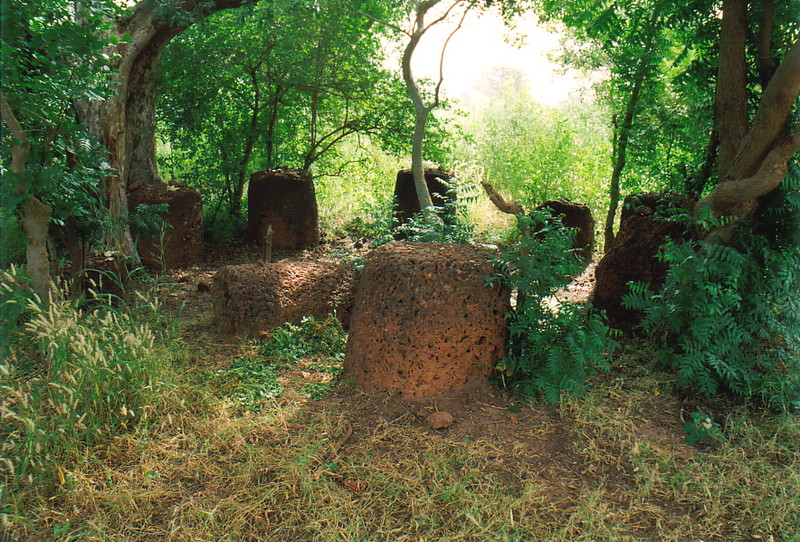-
Update Required To play the media you will need to either update your browser to a recent version or update your Flash plugin.
- Listen via a podcast [Help]
- Download as AAC or MP3 [Help]

It was Chris who set me off when we were still back on the Atlantic coast. I've never been terribly interested in the radio – DJs never seem to play the music I like, and I've only recently matured enough to appreciate Radio Four as something other than 'the station my mum listens to' – so when he announced he was going to pop into Serekunda to buy a radio, I didn't bat an eyelid. But that was before I discovered the joys of travelling with a short-wave in your backpack.
Chris returned that afternoon, D250 lighter and 200g heavier, and sitting down with a copy of the BBC magazine Focus in Africa, he started hunting the airwaves for entertainment. Hidden behind layers of static and rhythmic washing sounds, a voice struggled through the haze with, 'This is the BBC,' before fading into the ether. That was enough to get me hooked; I'm not that bothered with the concept of actually listening to the World Service, but I do like the idea of spending hours trying to track down a signal from home. I've just spent the last year working among the multicultural staff of the World Service in Bush House, and the thought of being stranded in the middle of nowhere and being able to pick up signs of life from back home gives me a thrill. As a weapon against homesickness, it doesn't get much better than hearing from home, even if it's via the BBC.
Chris' experiment was enough to persuade me into Serekunda the next day, but it was a Sunday, and all the shops were shut. I asked around and managed to find nothing but shutters under the electronics signs, but then I spotted a little shop selling TVs and fans, and wandering over I found an Indian man minding a counter full of pocket radios. At first he tried to convince me to pay D350, but I told him I was going to pay D250 because that's what Chris had paid, and that I wanted that model just there – a multiple-band model with a digital display, alarm clock, and a natty little carrying pouch. He valiantly tried to distract me from my choice with a whole range of radios, so I politely smiled as he fished out models from the likes of SQNY, Philibs, Toshaba and countless other brands that sounded strangely familiar but which were clearly nothing to do with SONY, Philips or Toshiba. I guess the intellectual property laws in the Gambia aren't that sophisticated – either that, or nobody's counting – so I picked a brand that didn't sound so blatantly illegal, and two minutes later I was the proud owner of a Techtron Japan eight-band FM/MW/SW radio. I couldn't wait to get it home.
Having played with my new toy for the last few days, I can report that it works a treat, though sometimes the reception of the BBC is practically unlistenable. But this is half the point: struggling to hear the odd word is part of the fun of listening to the radio on the road, and trawling through the airwaves is a fun way to kill an hour or so. An added bonus is that as you move through the continent, the range of available channels changes completely, and in English-speaking countries like the Gambia, the local stations are often in English, and if you're really lucky they're in an English-patois hybrid that's intelligible yet exotically African.
I doubt it'll turn me into a radio fan back home, but having a radio is a hoot on the road. I am most definitely a convert.